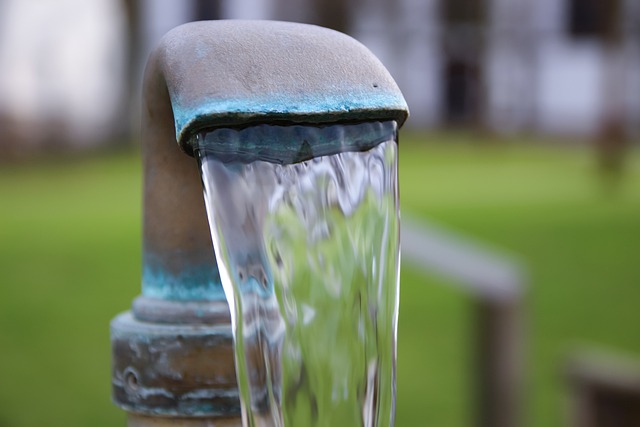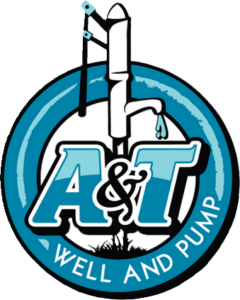If you are wondering how to improve well water quality, one of the primary things…
Clean and safe drinking water is essential for our health and well-being, and at A&T Well and Pumps of central North Carolina, we believe that everyone deserves access to it. As a leading provider of well pump services, we understand the importance of maintaining and protecting the quality of your well water.
That's why we've put together this guide to provide you with valuable information on how to prevent water well contamination. Whether you're a homeowner, farmer, or business owner, our are providing practical tips and insights to help you keep your well water safe and free from harmful contaminants.
Causes of Water Well Contamination
Water well contamination happens when there is the presence of harmful substances in the water supply that can pose a threat to human health and the environment. These harmful substances can include bacteria, viruses, chemicals, heavy metals, and other pollutants that may originate from natural or human sources.

It is essential to regularly test the water quality of wells and take preventative measures to avoid contamination. Proper well construction and maintenance, waste disposal practices, and agricultural practices can all play a critical role in preventing water well contamination. Regular can also help identify potential contaminants early on and allow for prompt corrective action.
Natural Causes of Water Well Contamination
The geological features and composition of the land around the well can impact the quality of the well water. For example, water wells located in areas with soft or acidic soil may be more vulnerable to contamination from heavy metals such as lead and arsenic. Additionally, climate factors such as rainfall and temperature can also impact water quality. For example, excessive rainfall can cause runoff of pollutants into the groundwater, while drought conditions can cause the concentration of contaminants to increase in the remaining groundwater.
Human Causes of Water Well Contamination
The use and improper disposal of chemicals can lead to contamination of well water. Chemicals used in farming such as fertilizers and pesticides can seep into the groundwater and contaminate the well. Household chemicals, such as cleaners and solvents, can also pose a risk if not disposed of properly. Industrial chemicals and waste can also pose a significant risk to well water. Other man-made causes of contaminated water in wells is due to poorly designed or maintained septic systems, as well as improper disposal of waste. Finally, agricultural activities including the use of pesticides and herbicides, fertilizers, and manure can contaminate well water, as these substances can leach into the groundwater.
Signs of Well Water Contamination

It is essential to monitor the quality of well water regularly to detect any . Signs of water well contamination can include changes in water quality, taste, odor, or color, as well as various health problems.
Changes in Water Quality
One of the most noticeable signs of water well contamination is a change in water quality. This can include increased turbidity or cloudiness, the presence of sediment or debris, and changes in pH levels. If you notice any significant changes in water quality, it is essential to have the water tested immediately to identify any potential contaminants.
Changes in Water Taste, Odor, or Color
Contaminated well water may have a distinct taste, odor, or color that is different from what you are used to. For example, the water may have a metallic taste or a musty odor. Discoloration of the water can also be a sign of contamination, such as brown or yellowish water. If you notice any of these changes, it is essential to have the water tested.
The Presence of Health Problems
Exposure to can pose various health risks, depending on the type and level of contaminants present. Some common symptoms of exposure to contaminated well water include gastrointestinal problems such as diarrhea and vomiting, skin rashes, respiratory problems, and neurological disorders. If you or anyone in your household experiences any of these symptoms, it is essential to seek medical attention immediately and have your well water tested.
Preventing Water Well Contamination
Preventing water well contamination is crucial to ensure that the water remains safe and healthy for consumption. Proper and well construction, as well as responsible waste disposal and agricultural practices, can help prevent water well contamination.
Proper Well Construction and Maintenance
Proper well construction and maintenance can help prevent contaminants from entering the well.
Here are some tips on how to ensure the prevention of water well contamination:
- Well location: The location of the well can have a significant impact on the quality of well water. Wells should be located away from potential sources of contamination such as septic systems, livestock pens, and fuel storage tanks.
- Well cap: A properly installed well cap can prevent the entry of foreign materials, such as insects and debris, into the well.
- Grading around the well: Proper grading can help prevent surface water from entering the well. The area around the well should be sloped away from the well to prevent standing water.
- Annual well inspections: Regular inspections can help identify potential issues such as cracks in the well casing, which can allow contaminants to enter the well.
Proper Waste Disposal
Proper waste disposal can help prevent contaminants from entering the groundwater. This can include responsible disposal of hazardous waste, such as batteries and chemicals, and household waste such as medications and cleaning products. Hazardous waste should be disposed of at designated facilities to prevent contamination of groundwater. Household waste, such as cleaning products and medications, should be disposed of properly according to local regulations.
Proper Use and Storage of Chemicals
Proper use and storage of chemicals can help prevent contamination of the groundwater. This can include the proper use of pesticides and herbicides. Pesticides and herbicides should be used according to the manufacturer's instructions and not over-applied. Additionally, household chemicals should be stored properly to prevent leakage or spillage. Any unused or expired chemicals should be disposed of according to local regulations.
Proper Agricultural Practices

Proper agricultural practices can help prevent contamination of the groundwater. This can include responsible use of fertilizers and manure and proper irrigation techniques. Fertilizers and manure should be applied according to soil test results and not over-applied. Proper storage and disposal of manure can prevent contamination of groundwater. Proper irrigation techniques, such as drip irrigation and using irrigation scheduling, can help prevent the over-application of water and chemicals, which can lead to the contamination of groundwater.
Regular Water Testing
Regular can help identify potential contaminants early on and allow for prompt corrective action. Well water should be tested at least once a year and more frequently if there is a change in water quality or other potential sources of contamination.
Contact Our Raleigh Well Water Experts Today!
If you need professional well water services, don't hesitate to contact A&T Well and Pump. Our team of experts in and is dedicated to providing you with high-quality well pump services including well installation, well repair, and well inspections.
We understand the importance of clean and safe drinking water and are committed to helping you protect the quality of your well water. Contact us today to schedule an appointment or to learn more about our services. Let us help you keep your well water safe and healthy for you and your loved ones.
Get started by calling us today at (919) 291-4063 or filling out the contact form below.
Contact Form
We would love to hear from you! Please fill out this form and we will get back to you shortly.
"*" indicates required fields

